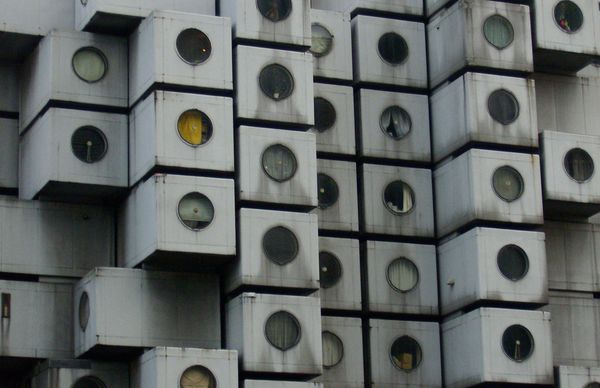The Russo-Ukrainian war has undoubtedly turned Europe upside down. The human and social losses are mostly felt in the two fighting countries, but the whole continent will feel the economic impact of the events for years. What lies ahead of us?
Massive inflation, the collapse of economic growth, and the economic costs of the war, in general, were discussed at the MCC Budapest Summit, an international conference organized by the Mathias Corvinus Collegium (MCC). Conference coverage from Hype&Hyper.
„Inflation is the highest economic cost of war,” began Dr. Corrado Macchiarelli, Head of Research at the UK’s National Institute of Economic and Social Research (NIESR). Central banks have used quantitative easing across Europe to increase the amount of money in the economy over the past decade. But this is not possible with double-digit inflation. The slower economic growth is further exacerbated by the loss of confidence in investment and economic actors, increased risk, trade restrictions, and sanctions. According to Macchiarelli, the two major factors in the current crisis are high commodity prices and supply-chain disruption. So, the economy is negatively affected by both the demand and supply side, but the supply side disruptions are the more problematic ones in Europe. Some countries benefit from high commodity prices, and higher levels of humanitarian aid to refugees are also a positive phenomenon. However, these positive effects are still heavily outweighed by the negative ones.
Olga Pindyuk, an economist at the Vienna Institute for International Economic Studies, first highlighted the plight of peripheral European countries and vulnerable households. It is true for both countries and individual households that the poorer they are, the more vulnerable they become and the less room for maneuvering they have during a crisis. They will suffer the most if no opportunities and cheap loans are available. This is even more true for Russia and Ukraine, as they are unlikely to attract many foreign investors for a long time, even after they stop the war. Europe has experienced a large influx of skilled Ukrainian refugees in recent months, which is a positive element in the current hardship. Moreover, Pindyuk stressed that a crisis might lead to rapid adaptation and transformation. She believes that already within a few years, we will feel the accelerated green energy transition’s positive effects.

Orsolya Ráczová, Deputy Director of the GLOBSEC Policy Institute think tank in Bratislava, highlighted that Ukraine will suffer from the war’s economic effects for many years to come. She pointed out that the Russian invasion had transformed the country’s entire economy. The roads and the factories, especially in Eastern Ukraine, were damaged, and the surviving production units switched to military production. Many resources, a significant part of Ukraine’s GDP, are being used for humanitarian aid and services. Moreover, the psychological effects of the war are enormous and irreversible, and destroyed schools can mean a crisis in education for generations.
The fourth speaker, Guillaume Vuillemey, Ph.D., associate professor at the HEC business school in Paris, turned the discussion back to a global scale. We have seen the positive effects of the specialization of the countries over the past few decades, but recently we have started to experience the negative attributes too. Food and energy reach us via complex supply chains, which are based on punctuality, and any shortage, any delay slows down the whole process. For many products, Europe has not noticed inflation for a long time as we could import these items from distant countries for cheaper, pushing prices down. But as the supply chains are disrupted or destroyed, the price increases of the past 10-20 years suddenly started to tighten our budgets. The international payment systems are another important global theme that we can discuss in the war’s context. It was already mentioned in 2001, after 9/11 and the collapse of the Twin Towers, that a single global financial system is not sustainable because of political reasons. The Russians are now out of the SWIFT system, but how long will the Europeans stay in the US-monitored service? Vuillemey’s third point concerns the US dollar. It is the most important currency for international trade now, but the politicization of payment systems might affect the USD’s value. Moreover, exchange rates are needed for free trade, so inflation is often determined not directly by monetary policy but by exchange rates.
Are there winners and losers in the war? Macchiarelli believes that only a few countries are winners whose economic performance depends on increased commodity prices. The great powers’ positions are also changing as Russia’s position is shaking, but Macchiarelli thinks that the US dollar’s position is also not as stable as it was a few years ago. The dollar’s stability is not nearly as strong as that of gold, for example. In addition, China is increasingly determined to enter the competition for international payment instruments.

Pindyuk said we should not be so quick to cry wolf regarding USD. Global market players still favor the US dollar and the euro, and the yuan is nowhere near. By returning to the winner-loser question, Pindyuk believes Russia achieved the opposite of what it wanted: Moscow started to lose even the appearance of being a major superpower. The current war shows that Russia neither has the high-tech industry nor the military strength it wanted to demonstrate to the world. And the imposed sanctions are directly and significantly hurting the Russian economy. India and China are also distancing themselves from Moscow, and the leaving international companies will not return to the country anytime soon.
According to Ráczová, there is also a big difference between the loser and the loser of a war. The most vulnerable countries now are those that have relied on Russian products and energy. Among the industrial sectors, she mentioned the automotive industry as a main victim of the current developments, as we are still feeling the aftershocks of the pandemic, the supply chain disruptions have made car manufacturing very difficult, and there are several German car factories in Ukraine which are no longer in operation for obvious reasons. Among social groups, she identifies the elderly, the disadvantaged, the people living from small family businesses or farms, and those directly affected by the war as the most vulnerable. Regarding the last group, she stressed that in the areas they live, economic life and education have basically ground to a halt, poverty rates have risen, and these people also face extreme challenges psychologically.
Vuillemey sees the war as restructuring the global balance of power and envisages a multipolar world order in the future. Regarding winners and losers, Europe has been clearly weakened, and the US is not in a great position either. However, some aspects work in Washington’s favor, such as Europeans’ hunger for gas, which is not satisfied by Russia anymore, but by US LNG supplies. A big challenge the Fed and the European central banks must face is China’s advantage in central bank digital currency (CBDC). Thus, Vuillemey does not predict the US dollar’s strength weakening, but rather that Washington could lose its leadership of the global economic world in the future if it cannot keep up digitally. Macchiarelli agreed with this point as he also deems China is ahead of the Western powers regarding CBDC. Still, he believes that the new financial world order will not be driven by technology but by politics.

The next question is how will the current period be perceived in two-three decades; how much will the early 2020s be seen as an economic crisis? Pindyuk believes that not the war caused the catastrophe; it was just the coup de grâce after all the mistakes the governments had made in the years before. The vast amount of money injected into the economy through quantitative easing hinders Europe from dealing with inflation quickly. Another problem is the growing support for radical, extremist political views, which is amplified during crises. Furthermore, we cannot ignore that global warming has not stopped during the war; we must continue to face it and take action.
Ráczová welcomed that the climate crisis was mentioned, as there can be severe consequences if we forget to take more steps to protect our planet. It is no excuse that we live through such a big crisis. Another crucial point we must not forget is solidarity. In a crisis, everyone primarily looks after themselves, and the countries implement protectionist policies. We have shown solidarity in the short term as we welcomed Ukrainian refugees and treated them well, but long-term cooperation is also needed.
Vuillemey highlights that many people still believe we can return to our former lives when the war ends. This illusion is never true. We do not know precisely where we are heading, but such enormous global ordeals we experience now always lead to a paradigm shift. The French professor thinks our potential future is the world of civilization states. In this world order, resources and stocks are not distributed according to economic logic but politically. The world’s access to resources is becoming increasingly constrained; we have already passed the peak of global resource extraction. The last time more oil was discovered than was extracted was in 1985. As states become more aware of the finite nature of extractible resources, these materials’ distribution will start to become politicized.
Graphics: Roland Molnár

Private reading room with unique solutions

The Nakagin capsule house in Tokyo could be rebuilt










